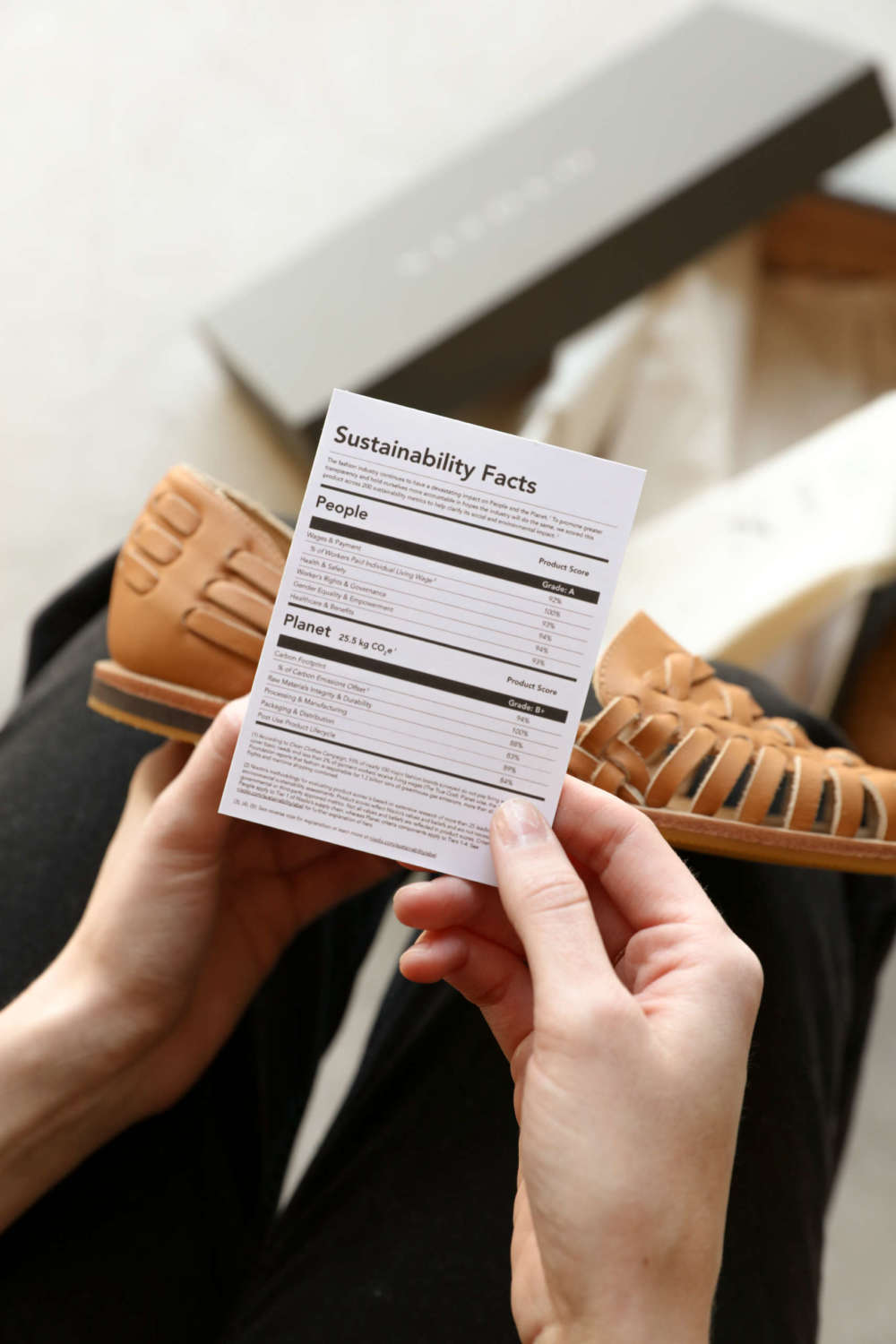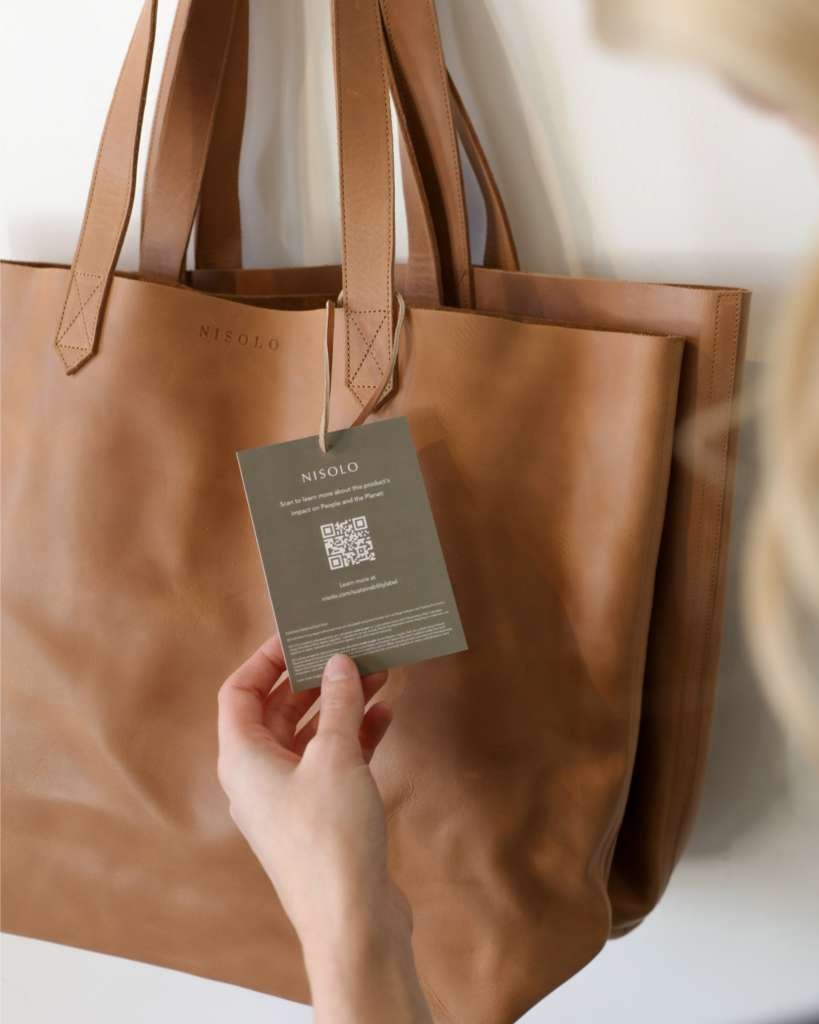Nisolo Launches The World’s 1st Sustainability Facts Label

Share This Article
| All products featured on The Wellness Feed are independently selected by our editors for its environmental and ethical impact. However, when you buy something through our retail links, we may earn an affiliate commission. |
Nisolo, the artisan-made shoe brand known for living wages, is now giving consumers access to transparency within the fashion industry. Beginning December 20th, the B Corp certified company will package all of their products – like their well-known Nisolo boots- with sustainability tags. The tags will show consumers how each product is made along with its impact on both people and the planet.

Transparency is desperately needed in the fashion industry. Greenwashing and false marketing can be misleading and confusing when it comes to understanding which products are truly sustainable. Take for instance a recent study showing that nearly 80% of fast fashion products are made from virgin plastic-based fabrics like polyester despite many of these brands making sustainable or recycled collections. In fact, according to a recent study an estimated 42% to 60% of fashion brands exaggerate their sustainability claims.
On the other end are fashion companies that offer little to zero data about how their clothing is made. Look at the clothes that you have hanging in your closet right now. What do their labels tell you? The country an item is predominantly made in? The materials? Yet how does that help us as conscious consumers understand the human and environmental impact from our clothing? The answer is, it really doesn’t. Sure, seeing organic cotton is good to know that your clothes are made without pesticides. But, what about living wages for garment workers? Were CO2 offset? Was it a circular designed product? These are a few of the questions that what Nisolo aims to answer through clothing tags that offer a deeper and more transparent insight into how their products are made.

Most labels today cover 0 criteria for People and 6 or less for Planet, ours covers 200 data points across People AND Planet. We want consumers to have access to this level of transparency.
To make it easy for consumers, the labels read like nutrition labels on food items. Similar to how those labels were designed to ‘encourage food companies to produce healthier food and help consumers make better choices’ Nisolo’s sustainability labels are designed to help foster a community of transparency between fashion labels and consumers. The brand looks at various points across a product’s lifecycle, from the raw materials to how it can be disposed of. Each area is individually accessed for the sustainable aspects and then given a score of 0 to 100%.
For full transparency and accountability, Nisolo hasn’t created this process only through their in-house team. They have also including other organizations in the scaling process. Each label uses data that is audited by 3rd parties like B Corporation, Leather Working Group, Climate Neutral, Fair Trade, Higg Index, Textile Exchange and other organizations that focus on environmental and social justice.
Consumers will have several options for accessing these labels. Online, we can look at the sustainability labels just as we would regular product descriptions with both side-by-side. In store, the labels will be included with tags along with more a QR code that will offer more detailed information about the sustainability label.
Even though Nisolo has offered an innovative solution for transparency between brands and consumers about the sustainable aspects of their products, the company doesn’t want to stop there. Much like their #LivingWage campaign called out brands and consumers to question whether or not minimum wages were livable and if not to adopt better wages, this campaign is similar. #SustainabilityFactsLabel calls out brands for their lack of transparency and asks them to move towards models where they openly share data about how their clothes are made.
It’s as the brand’s mission statement explains, “We all value people. We all value the planet. It’s time for our clothes to do the same.”
